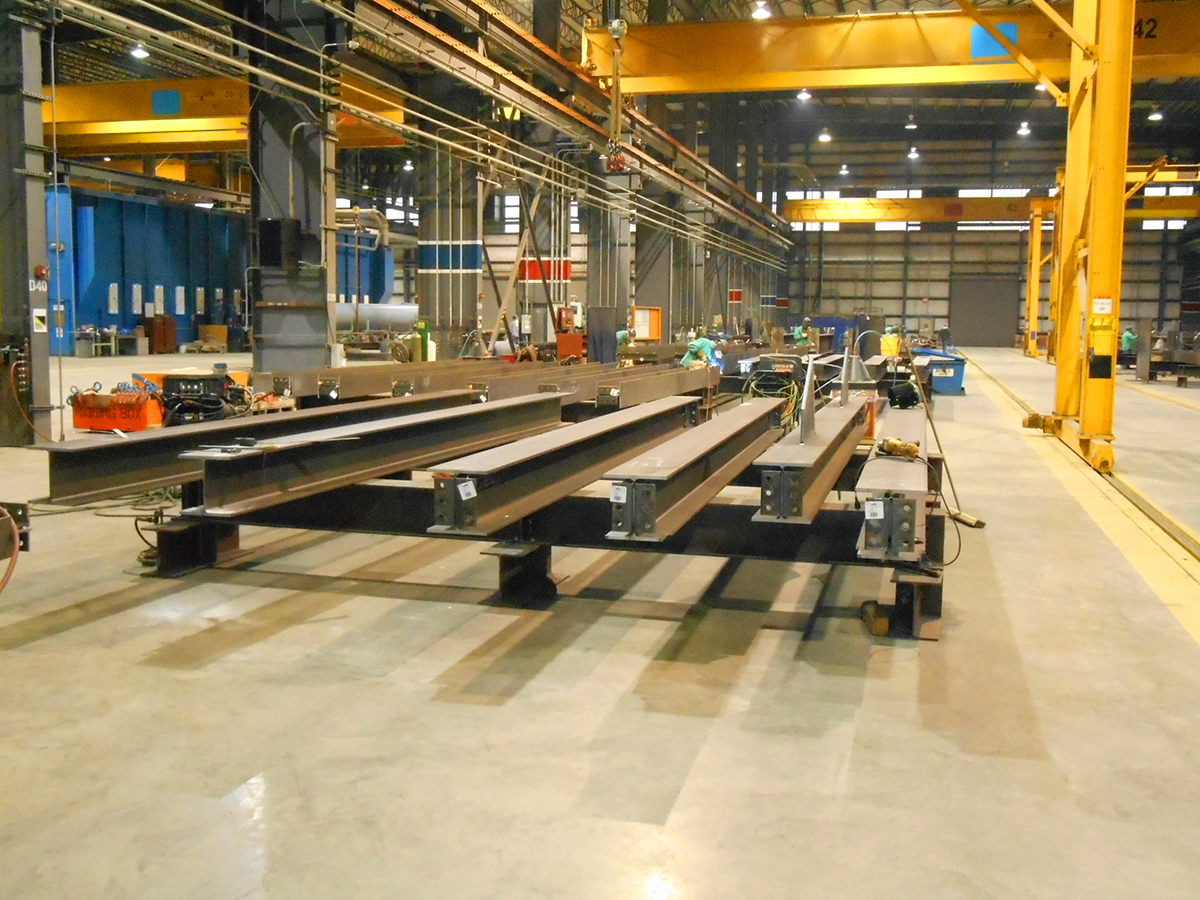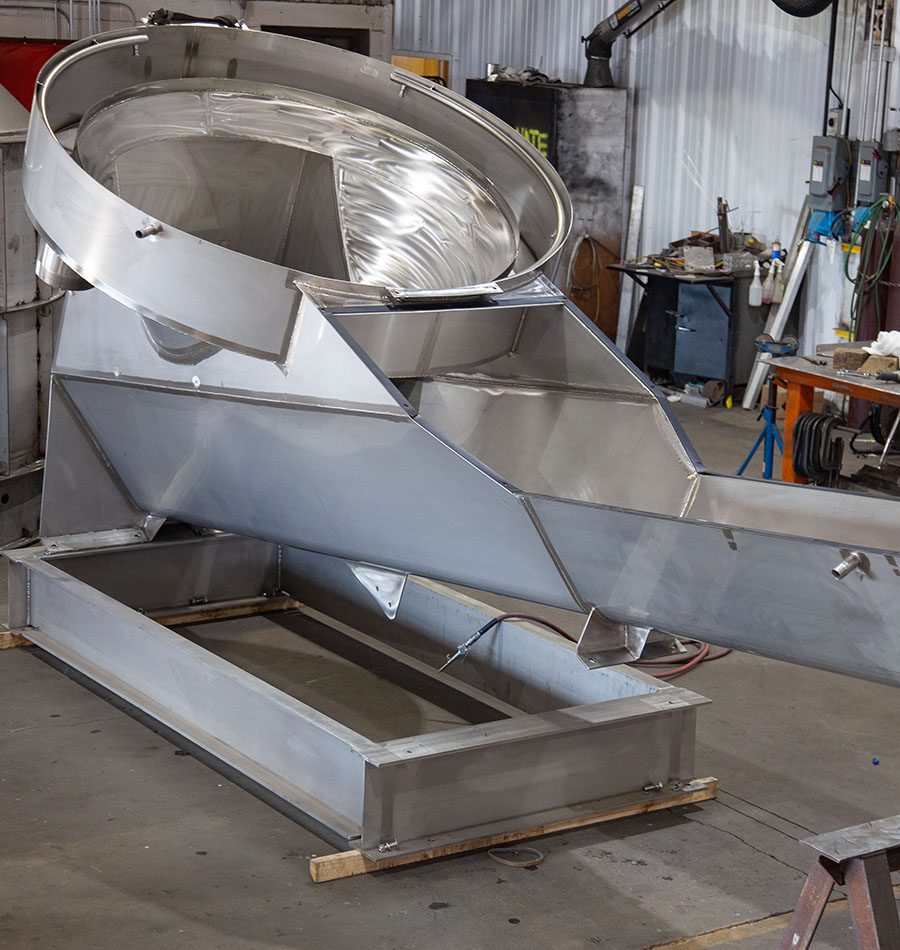The Ultimate Manual on Custom-made Steel Construction Solutions for Structural Projects
In the realm of architectural jobs, the importance of custom steel manufacture services can not be overstated. From the fundamental understanding of steel fabrication essentials to the complex process of picking the most suitable materials, every action in this trip plays a pivotal duty in the supreme success of a task. As we navigate via the complexities of design considerations, manufacture procedures, and quality assurance procedures, a comprehensive handbook acts as a guiding light for experts looking for excellence in steel fabrication options. Keep tuned to discover the understandings that can transform the means structural jobs are come close to and performed.
Recognizing Custom Steel Construction Essentials
Diving into the fundamentals of custom-made steel construction gives insight into the elaborate procedure of changing raw steel right into customized architectural components. Custom steel fabrication is a specialized production strategy that entails cutting, shaping, and setting up steel materials to produce unique structures according to details task needs. Recognizing the essentials of personalized steel manufacture is crucial for guaranteeing the successful execution of structural projects.
The process generally begins with the assessment of project specifications and design requirements. This initial phase includes detailed preparation and collaboration in between makers, engineers, and designers to figure out one of the most appropriate technique for fabricating the steel components. Accuracy is vital during the construction procedure, as also minor variances can affect the architectural integrity of the end product.
Different methods, such as cutting, welding, and shaping, are used to change raw steel into the wanted architectural elements. Competent makers utilize advanced equipment and tools to guarantee accuracy and uniformity throughout the construction process. Quality assurance steps are carried out to verify the honesty of the made parts before they are assembled on-site, guaranteeing conformity with industry criteria and project requirements.
Choosing the Right Steel Materials

Firstly, the type of structural task and its details needs play an essential duty in establishing one of the most appropriate steel materials. Aspects such as the load-bearing ability, ecological conditions, and wanted life-span of the structure will dictate the quality and type of steel that need to be utilized.
Furthermore, the physical buildings of the steel, consisting of ductility, weldability, and strength, need to line up with the job's demands to ensure optimal performance and durability (Alpha reo). Furthermore, factors go to these guys to consider such as rust resistance, cost-effectiveness, and accessibility of the steel products ought to also be taken into consideration throughout the option process
Style Factors To Consider for Architectural Projects
Structural jobs necessitate careful attention to create considerations to make sure both functionality and safety and security are focused on throughout the building process. When it comes to creating architectural tasks, a number of vital elements must be taken right into account to ensure the success of the endeavor. By carefully taking into consideration these elements throughout the style phase, architects and designers can guarantee the architectural job's success from conception to conclusion.
Streamlining Fabrication Processes for Effectiveness

Moreover, applying lean production principles can considerably improve performance in steel construction. By reducing waste, optimizing operations, and enhancing interaction in between different groups associated with the construction process, tasks can be completed more promptly and with higher quality criteria.
Additionally, establishing an efficient production timetable and process can help in focusing on tasks, appointing resources properly, and conference project target dates quickly. By having a clear strategy in position and regularly checking development, any kind of prospective traffic jams or delays can be recognized and dealt with without delay, guaranteeing effective and smooth manufacture processes for structural jobs.
High Quality Control and Job Administration in Steel Construction
To guarantee the successful execution of steel fabrication projects, meticulous quality assurance measures and effective task monitoring techniques are necessary elements in preserving precision and meeting customer assumptions. Quality control in steel fabrication involves rigorous inspections at numerous phases of the construction procedure to verify compliance with job requirements and industry standards. This includes material screening, dimensional checks, and weld examinations to ensure architectural integrity and security.
Job monitoring plays a crucial role in coordinating the different elements of steel construction jobs, such as organizing, source appropriation, and interaction amongst group participants. A distinct task strategy with clear purposes, landmarks, and timelines aids to check progression and address any potential issues proactively. Reliable interaction in between all stakeholders, consisting of customers, designers, producers, and professionals, is vital for guaranteeing that the job progresses efficiently and meets the desired high quality criteria.
Conclusion
To conclude, custom steel construction plays a critical role in structural jobs by supplying tailored solutions making use of the best products and style considerations. Performance in construction procedures, quality assurance, and effective project administration are necessary for effective important site end results. By understanding the basics of customized steel construction and carrying out structured processes, project teams can provide resilient and high-quality frameworks that fulfill the particular demands of their clients.
Personalized steel fabrication is a customized manufacturing method that entails cutting, shaping, and putting together steel products to produce one-of-a-kind structures according to particular job requirements.To guarantee the effective implementation websites of steel fabrication tasks, precise high quality control measures and efficient job administration methods are vital components in maintaining accuracy and conference customer expectations. Quality control in steel construction involves strenuous inspections at different phases of the fabrication procedure to verify compliance with task specifications and sector criteria (steel fabricators melbourne).Job monitoring plays a crucial duty in working with the numerous elements of steel manufacture projects, such as organizing, resource allowance, and communication among team participants.In final thought, personalized steel manufacture plays a critical duty in architectural jobs by supplying tailored solutions utilizing the right products and design considerations
Comments on “Steel Fabrication Melbourne: Workmanship Fulfills Technology”